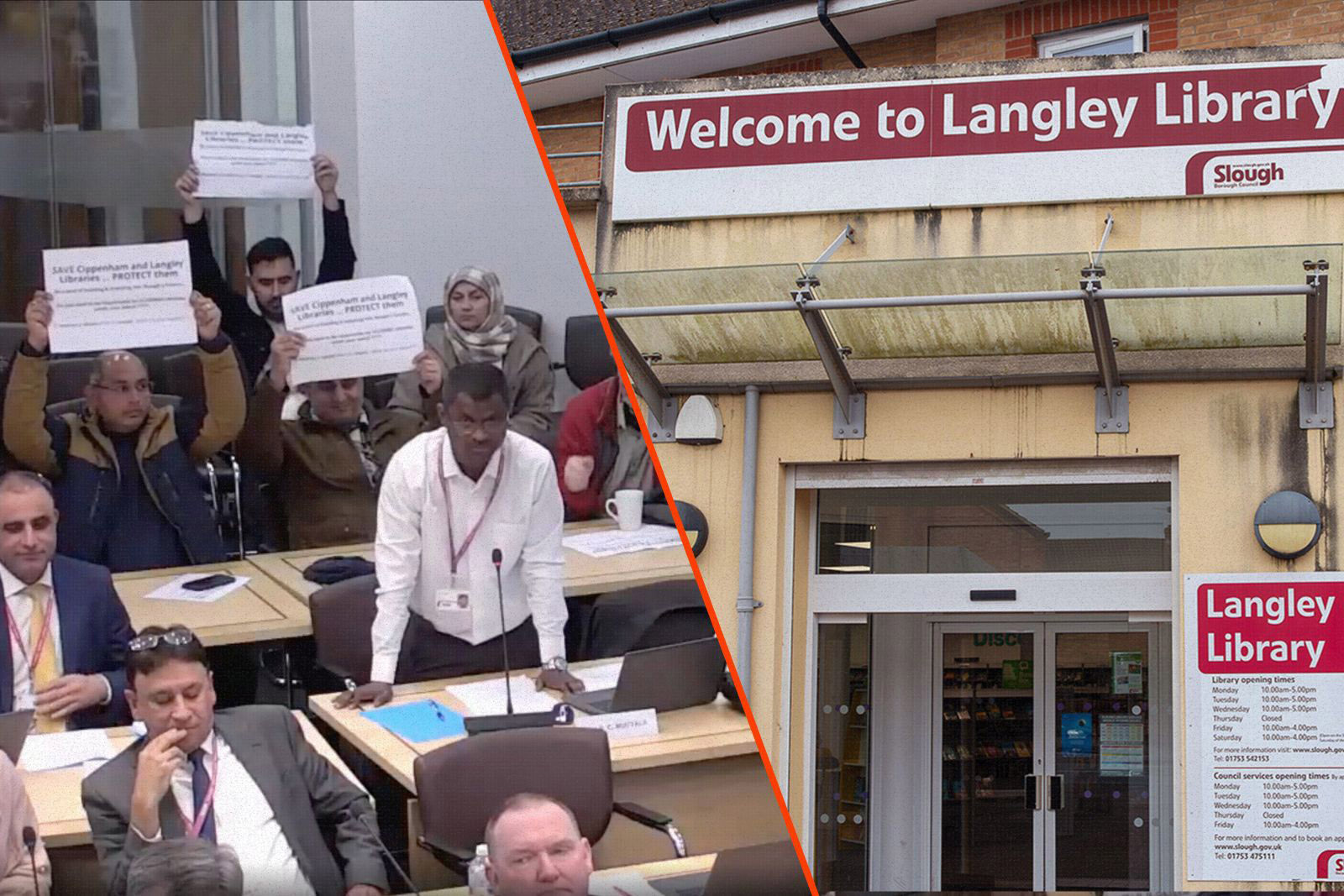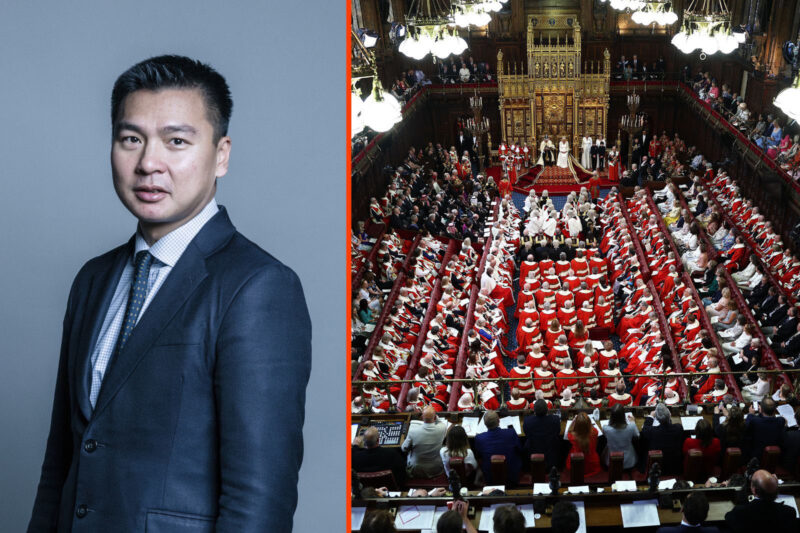‘Essential to the community’: Slough fights back against library closures
The town, home to one of Britain’s biggest Muslim populations, went bankrupt in 2021. But councillors and families say cutting libraries is a step too far

Families, business owners and local councillors in Slough are battling to save two libraries ahead of a crunch meeting that will decide their future next month.
Chandra Muvvala, an independent councillor for Langley Marish, who is leading the campaign to save Langley and Cippenham libraries, is asking local families and politicians to join a protest outside council offices on 24 April.
Slough is home to one of Britain’s largest Muslim populations: just shy of 30% of its residents, according to the 2021 census.
“Libraries are essential to the community. Langley library is within walking distance of eight schools, which means young people often come here to hang out with friends after school. It’s more than just a place to get books — it’s a social space,” Muvvala said.
Conservative-run Slough council announced in December that it was considering closing the libraries to save £195,000 a year.
The proposal prompted a swift backlash, with a petition opposing the closures reaching more than 2,000 signatures in January. As a result, the matter will be debated in the next full council meeting on 24 April before a decision is made at a cabinet committee meeting on 19 May.
Users describe the libraries as essential community hubs. Both regularly host reading groups for all ages as well as seated exercise sessions for elderly and disabled people, while Langley holds a monthly drop-in for people with housing problems.
The library is also used by employment charity Ways into Work and Browns Community Services, a support service for people and families who are vulnerable, homeless or living in extreme poverty.
Muvvala fears that, if Langley and Cippenham libraries close, their services may be moved nearly an hour’s walk away to The Curve library in Slough town centre.
“This is a blow to service users from disadvantaged backgrounds and low-income households who don’t have the funds to travel into the town centre,” said Angeline Gore, chief executive of Browns Community Services. “We will also see an increase in social isolation for some of them, who we have encouraged and supported to use the library daily and take advantage of the facilities on offer.”
Data from Slough council shows that Langley library saw more than 48,000 visits last year, and Cippenham library more than 27,000.
But Ishrat Shah, a Conservative councillor for Cippenham Green, said the council had “no money” and was “in such a mess that we have to make some very hard decisions to try and get financial stability”.
“I’m a library user as well as my children, so I understand and share the feelings of the residents,” she said. “Whatever our situation, I will be speaking in favour of the residents and do as much as I can to keep the libraries.”
Local business owners also fear the knock-on effects of library closures. One Muslim shopkeeper, who asked Hyphen not to publish his name, said parents often came into his fruit and veg store before or after taking their children to the library.
“I have a granddaughter and grandson who enjoy going there, taking out books and bringing them home,” he added. “They’re always asking us questions about what they are reading.”
Mohan Singh Grewal, 69, has lived a short walk from Langley library since the 1980s. He took his daughter there as a child and hopes that future generations will have the same opportunity.
“I still go once or twice a week, whenever I get the chance,” he said. “I go there to read as they have Punjabi books, and I meet so many people there who I know.”
Research by the BBC published last month found that cash-strapped councils had shut 190 libraries across the UK in the past five years.
Slough was declared bankrupt in 2021. The government appointed three commissioners to help the council get its affairs in order, but according to letters sent by the Ministry of Housing, Communities and Local Government, their presence can cost the town hall up to £510,000 in annual fees — more than double the amount that closing the two libraries will save.
In a statement, the council said: “Providing a comprehensive and efficient library service which meets the needs of our communities is something we take very seriously. We are committed to listening to the views of residents and taking them into account in any decision we make.”
 Newsletter
Newsletter













